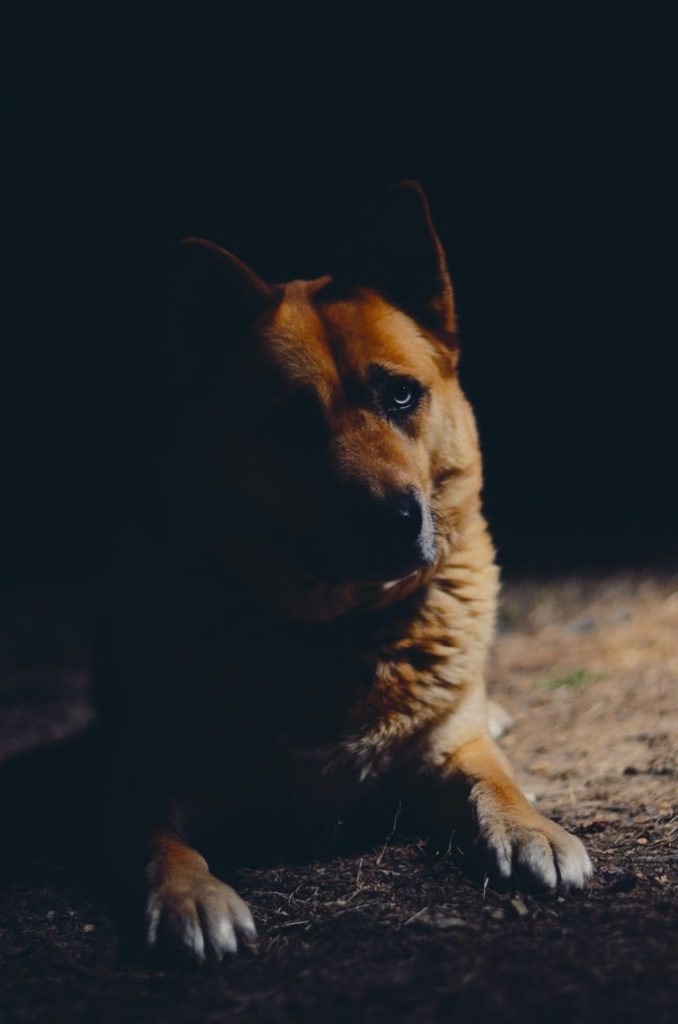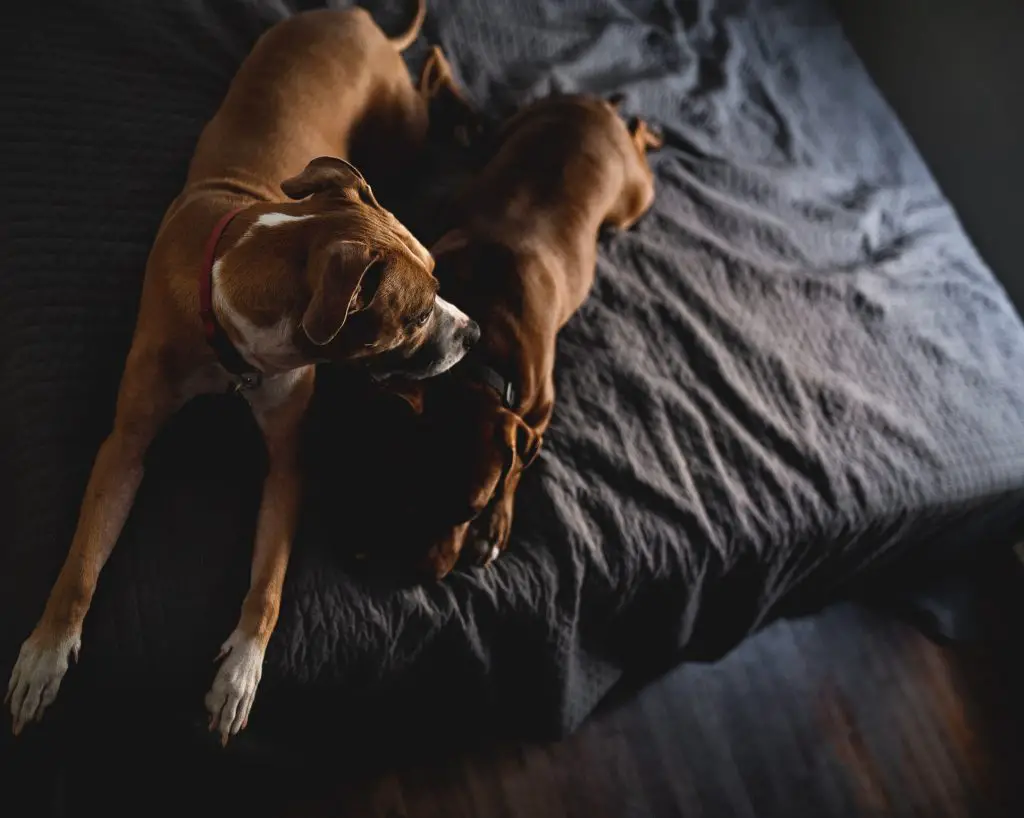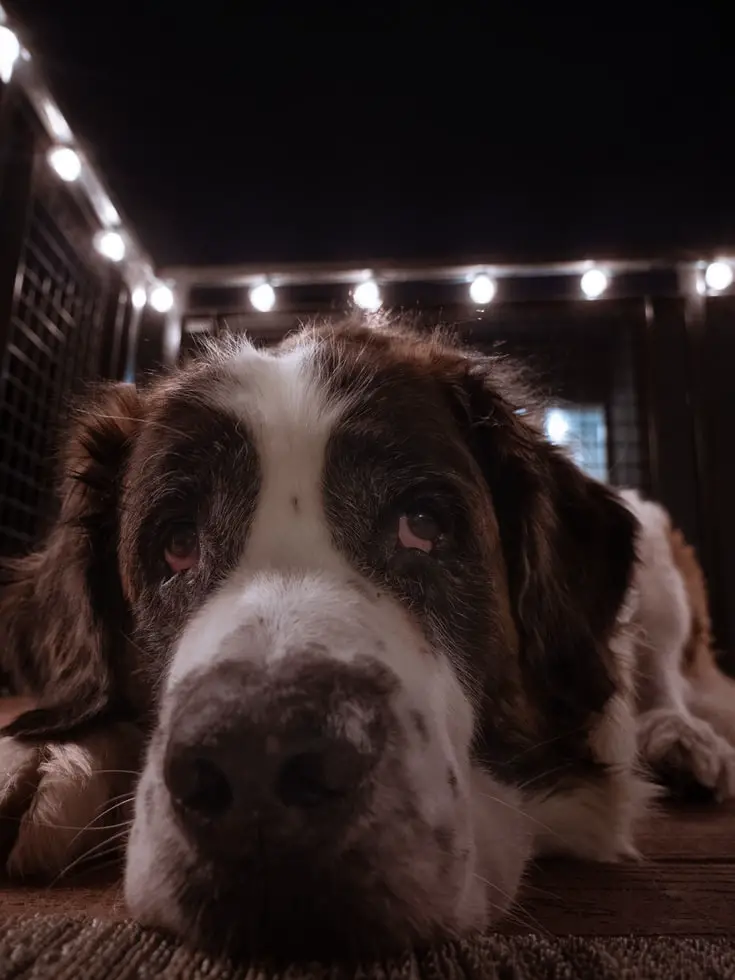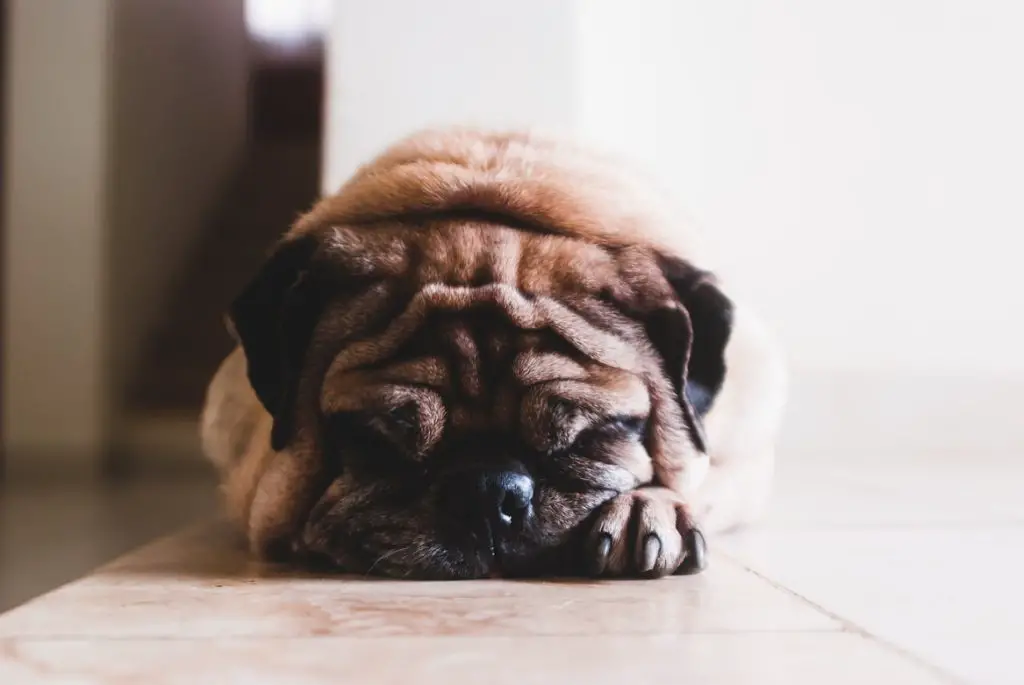Puppies, rescue dogs, older dogs and even well-trained middle-aged dogs can have accidents in the house at night.
Why dogs suddenly start pooping in the house can be very baffling for people. If this is happening to you, it can become frustrating for both you and your dog.
We know that dogs communicate with us through their behavior and physical cues. Unless we totally understand their language, it’s difficult to figure out exactly why this new behavior is happening.
Related Articles:
- How to Obedience Train Your Dog
- How to Leash Train Your Dog
- How to Get Rid of Dog Warts at Home
- How to Housebreak or Potty Train Your Puppy
- How to Clicker Train Your Dog
However, in this article, How to Stop a Dog from Pooping in the House at Night we’ll try to get to the bottom of why this is occurring to your dog by;
- looking at the causes and reasons dogs can have accidents in the house
- offering possible solutions,
- looking at specific medical reasons,
- tips for how to stop a dog from pooping in the house at night,
- house training tips for rescue dogs and senior dogs.
Why does my dog poop in the house at night?
The answer can range from physiological issues, physical issues and even the dog’s current living situation. We will look at the top reasons for dogs pooping in the house.
Related Articles:
- A Review Of The Top 5 Best Salmon Oils for Dogs
- The Best Canned Dog Food for Dogs with Sensitive Stomachs
- How to Cook Liver for Dogs
- A Review Of The Top 5 Best Tactical Dog Harnesses
- How to Build an Outdoor Dog Potty Area on Concrete
How to Stop a Dog from Pooping in the House at Night: 10 Reasons for this Behavior
While reading through the following ten reasons dogs poop in the house you can see if any of them describe your dog and situation. We will want to figure out the cause before offering solutions to how to stop a dog from pooping in the house at night.
Insufficient diet. Sudden diet changes can cause gas and intestinal issues for your dog. A dog’s digestion is sensitive and uniquely balanced. Dog food that is cheaply manufactured contains fillers that a dog does not need in their diet. A poor diet will cause the dog to eliminate more frequently and produce more stool.
New family member. When we add or subtract from a dog’s family unit, they can become distressed. This includes both human and canine family members.
Distracted during potty breaks. Dogs that are only let out for the purpose of eliminating tend to get distracted. When they do get outside, they have the opportunity to stretch their legs and explore new smells. They are so distracted that taking care of their business is completely forgotten.
Accidents in the house that are not properly cleaned up. Whether the actual feces is left in the house or the scent of it, both are telling your dog that it’s okay to establish a new elimination spot. Dogs leave their scent behind when they defecate and urinate.
Related Articles:
- Ultimate Guide: How To Take Care Of A Puppy
- Ultimate Guide: How To Take Care Of A Dog
- Ultimate Guide: How To Take Care Of A Senior Dog
- The Benefits of Owning a Dog
- Top 12 Tips for First Time Dog Owners
- How to Train a Dog
The dog is stressed. There are many reasons for a dog to become stressed. One of the biggest is change! It can be a change in their routine or change in your schedule. They also pick up on household turmoil and stress between humans.
Recently moved. How your dog responds to moving does depend on the dog’s breed and personality. Most dogs need a few days to adjust to the change, but for some it may cause relapses in house training.
Medical issues. The dog’s stool can be a way to communicate that something is not right with their body. There are many health issues that can show up in the form of loose or firm stools.
Separation anxiety. In addition to learning how to stop a dog from pooping in the house at night, you’ll want to lessen any anxiety for your dog. Other signs of anxiety are whining, barking, excessive panting, and destructive behavior. To reduce anxiety, leave your home calmly and quietly, and do the same upon returning.
Older dog. As a dog ages they can forget why they were let outside before bedtime. They might also forget where to go when nature does call.
Having a small patch of yard where the dog has previously gone potty (and you purposefully have not cleaned it up) can remind a confused dog what they are supposed to do and where they should be doing it.
Related Articles:
- A Review of the 5 Best Dog Muzzles
- A Review Of The Top 5 Best Dog Clickers
- How to Build an Outdoor Dog Potty Area on Concrete
- How to Cook Marrow Bones for Dogs
Spends too much time inside. A dog needs the opportunity to eliminate several times during the day. Daily walks and outside potty breaks are needed for dogs of all ages.
The above reasons are not an exhausted list, but they do give possible reasons for a dog eliminating in the home. You will still need to learn how to stop a dog from pooping in the house at night regardless if you know the exact reason.
Now that you have an idea what the problem could be for your dog. Let’s proceed with learning the specifics for how to stop a dog from pooping in the house at night. There are eight possible solutions for you and your dog.

How to Stop a Dog from Pooping in the House at Night: 8 Possible Solutions
Solution #1 The Distracted Dog
A dog that enjoys being outdoors to run, play and sniff can forget to eliminate.
- Make a conscious effort to take 3-4 outdoor breaks during the day.
- Fit in a nice sniffy walk and/or outdoor training session.
- Use a word for potty time, like “take a break’, ‘business’, park”.
- Try not to have a conversation with your dog while they are finding the perfect spot.
Solution #2 Upgrade Their Diet
- Become a label reader. The first several ingredients in dog food should be real meat and possibly meat meal. The appropriate protein percentage is between 18% – 26%.
- Dogs are not strict carnivores, they eat healthy grains, organ meats (such as liver), select vegetables and select fruits as part of a balanced diet.
When learning how to stop a dog from pooping in the house at night, what ingredients should I look for in commercial dog food?
Real meat, meat meal, digestible carbohydrates, vegetables, fruits, fats, vitamins, minerals, natural preservatives, and water.
Related Articles:
- How to Cook Liver for Dogs
- How to Get a Picky Dog to Eat
- How to Stop Your Dog from Peeing When Excited
- How to Keep Your House from Smelling like Dog
- How to Measure a Dog for a Harness
Solution #3 Reduce Fear and Anxiety
Dogs can be fearful of loud noises, fireworks, truck brakes and children playing.
- Know that when dogs are going poop, they are in their most vulnerable position.
- Fearful dogs want to hide, and not leave behind feces or urine.
- Introduce pee pads indoors until the dog is adequately socialized with different sounds and their surroundings.
- Transition to outdoor potty breaks as the dog becomes confident.
Solution #4 Clean Up Every Accident
It’s important to promptly clean up your dog’s poop indoors.
- Use cleaning supplies that do not contain bleach or ammonia. (Many household cleaners contain ammonia which closely resembles the scent of urine to a dog.)
- Using gloves, spray distilled white vinegar on the spot and work it into the carpet.
- Blot up moisture with a rag or paper towel.
- Sprinkle the area with baking soda. Let it sit for 45-60 minutes. Vacuum carpet.
- If needed, use an enzymatic cleaner designed for animal accidents to eliminate lingering odors.
There are varying sizes depending on the size of your pet and if you have more than one dog, you might need a larger size bottle.
Dogs will tend to eliminate in the same place as each other so if you don’t clean it up quickly, you might have a bigger mess on your hands.
Related Articles:
- Can Dogs Eat Shrimp?
- Can Dogs Eat Broccoli?
- How to Cook Marrow Bones for Dogs
- How to Cook Liver for Dogs
- How to Get a Picky Dog to Eat
- How to Get Your Dog to Eat
Our website is supported by our users. We sometimes earn money when you click an affiliate link and make a purchase. This is at no extra cost to you and helps us to create quality content. Thank you for your support.
This is the enzymatic that we use and it does the job well even on urine, smells good and is affordable. (affiliate link)
Solution #5 Establish a Routine
Dogs are creatures of habit and thrive on humans being predictable.
- Routine potty breaks – upon waking, midday, early evening and before bedtime.
- Scheduled feeding times.
- Regular walks, play time and training time.
Once a dog has a routine, such as eating, eliminating, and taking walks at the same time each day, it will get their system working properly and reduce stress.
Related Articles:
- How to Train a Dog to Run Next to a Bicycle
- How to Teach an Older Dog New Tricks
- How to Train a Deaf Dog
- The Top 12 Fun and Easy Dog Tricks
- How to Train a Dog
Solution #6 Familiar with Multiple Surfaces
Often breeders will introduce many different surfaces to a dog before they go to your home. However, be aware that some dogs did not have that early exposure and may only go on certain surfaces, such as paper, wood chips or in their living space.
- Take them for walks on dirt, grass, and pavement.
- If they started on a pee pad, bring the pad outdoors with you and introduce a new area before a new surface.
- As you make the transition, make the pad smaller and smaller until eventually they are eliminating on grass (or the desired surface).
Solution #7 Designated Areas for Senior Dogs
As a dog ages, they could have memory issues, and often forget where to eliminate.
- Take your dog out frequently, as they might not be able to hold it for as long.
- Stay with them until they eliminate.
- Gate off designated areas for your senior dog.
- Consider introducing pee pads.
Solution #8 Take Your Dog for a Walk
Your dog depends on you to care for them every single day for their entire life.
- Exercise allows for great sniffs and stimulation.
- Movement stimulates bowel movements.
- Your dog will develop a routine for eliminating.

How to Stop a Dog from Pooping in the House at Night: Medical Issues
After considering all the behavioral issues associated with dogs defecating indoors, you are pretty sure that does not describe your dog. It is possible that your dog has a medical issue.
When we look at how to stop a dog from pooping in the house at night, we want to rule out a number of medical issues.
Dogs can have difficulty with defecating and urinating if they have an inflamed bowel, bladder stones, kidney disease, diabetes, viral infection, or parasites.
The best course of action is to make an appointment with your vet and bring in a stool sample for testing.
It is possible that dogs with food intolerance and allergies could experience lack of bladder control. Ask your vet about your dog’s diet and other possible symptoms associated with allergies.
Related Articles:
How to Stop a Dog from Pooping in the House at Night: 3 Additional Tips
- When an accident happens, stay calm. Bring the feces out to your yard in the spot you would like to them go. In the daylight bring your dog out to inspect the area.
- Crates used at night and while you are gone from the house help with wanderings and random pooping.
- When establishing mealtimes, chose early evening. Most dogs eliminate 30 minutes after they eat a meal. Save treats for the daytime.

How to Stop a Dog from Pooping in the House at Night: 5 Tips for Re-House Training
- Establish a routine. Feeding times, elimination times, and exercise is best around the same time very day. Dogs thrive on routine. Be predictable for your dog!
- Praise after proper elimination.
- Take your dog out after they sleep, wake up from a nap, eat, in the afternoon and before bedtime. Limit exercise right before bedtime.
- Supervise.
- Use a wire dog crate or gated off area for your dog. If you are unable to supervise your dog, place them in the dog crate or safe gated area.

